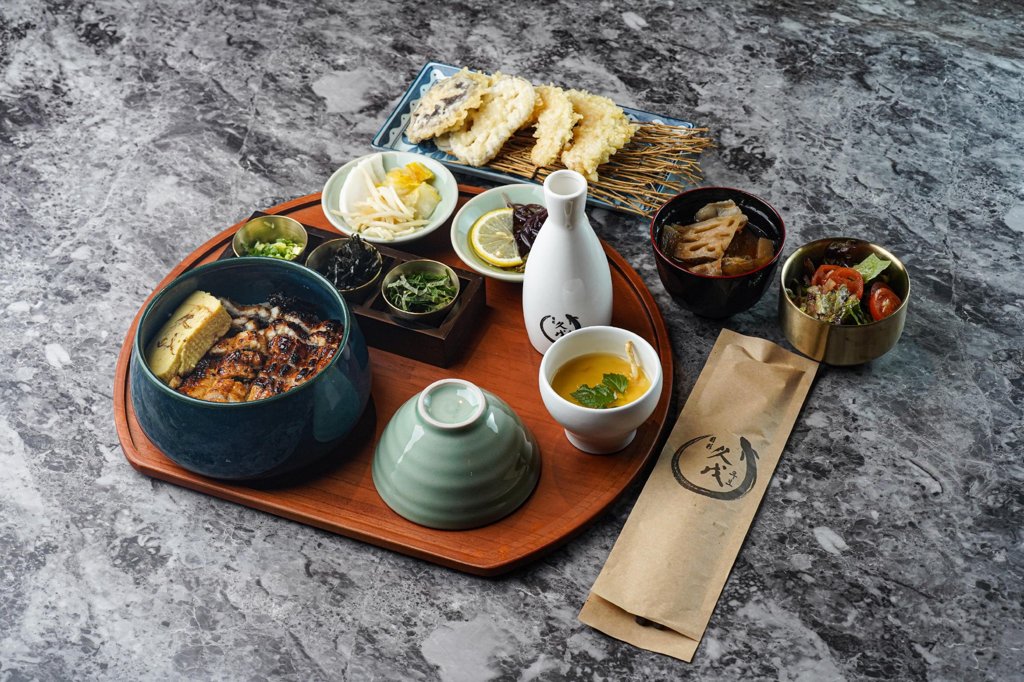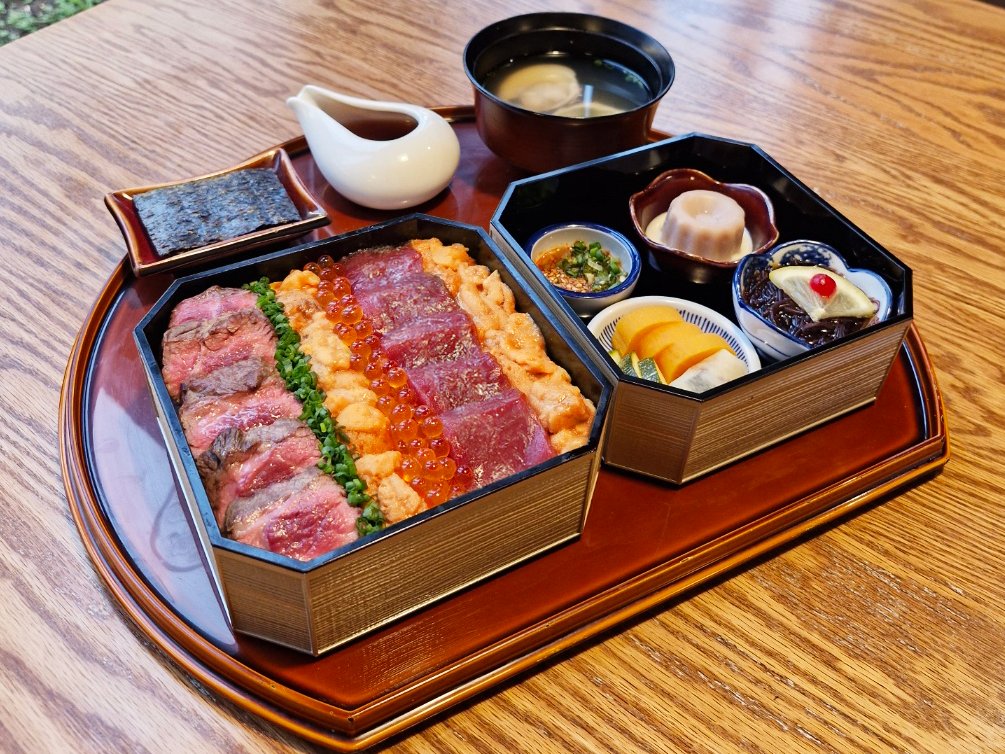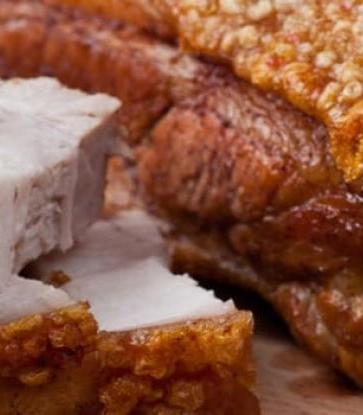As the summer sun rises high, Busan's bustling seafood markets come alive with the vibrant sights and sounds of vendors showcasing the freshest catches. The city, a coastal gem in South Korea, offers not just a feast for the eyes but also culinary treasures that combat the intense heat of Sambok, the three hottest days of summer. According to old Korean sayings, ‘Even a grain of rice on your lips feels heavy during the dog days of summer,’ and ‘Even an ox's horns bend in the midsummer heat,’ perfectly capturing how tough it is to move in such extreme temperatures.
To beat the heat, Koreans have long turned to hearty foods rooted in ancestral wisdom to fortify the body against the blazing weather. Busan's local food culture is a vibrant tapestry, reflecting the diversity of its culinary scene. Each corner of the city serves unique flavors, combining tradition and innovation.

Shunsai Kubo
Nestled in a quiet corner of Busan, Shunsai Kubo offers a serene dining experience that transports you straight to Japan. The restaurant’s standout dish is hitsumabushi, which combines the texture and flavor of Kansai-style cooking with the tenderness of Kanto style, creating a perfect harmony between eel and rice. The freshwater eel used in this dish is sourced from Hwachon Fish Farm in Naju, ensuring top quality. Chef Lee Jae-wook is also developing other notable dishes, including a stamina bowl featuring Korean-style bulgogi and Japanese grilled eel, and Unakotsu onmen, a long-simmered eel bone and vegetable broth.
“We often hear that our food is ‘fulfilling and revitalizing,’” Chef Lee said. The eel, rich in vitamins A, B2, B1, and D, along with unsaturated fats, offers numerous health benefits, including boosting metabolism, improving skin and bone health, and preventing arteriosclerosis and dementia.

Kumsu Bokguk
In the heart of Haeundae, Kumsu Bokguk stands as a testament to the delicate art of pufferfish cuisine. Chef Kwon Oh-sun, at the helm since 2002, crafts pufferfish dishes with a focus on quality ingredients and their nutritional benefits. The signature pufferfish soup, served in earthenware pots, stays warm until the last spoonful and includes specially grown water parsley and bean sprouts for crisp texture and taste. Pufferfish sashimi, known for its chewy and delicate flavor, is enhanced with a special ponzu sauce. Additional dishes like pufferfish stew, fried pufferfish, pufferfish skin salad, and pufferfish tartare highlight the versatility of this fish.
Pufferfish is praised for its health benefits, particularly during Sambok. Donguibogam, a treasured Korean medical encyclopedia written by Heo Jun in the 16th century, states that pufferfish help restore energy and eliminate excess moisture. It aids in preventing thrombosis, hyperlipidemia, and gallstones, strengthens the heart, prevents diabetes and kidney disease, and relieves muscle fatigue. As a low-calorie, high-protein food, it boosts metabolism, making it ideal for diets and health maintenance. Rich in EPA, DHA, and calcium, it lowers cholesterol, aids vision recovery, and helps patients with anemia. Additionally, it enhances liver detoxification, alleviating hangovers.
Kumsu Bokguk ensures the safe preparation of pufferfish through certified chefs and a meticulous detoxification process. Chef Kwon balances tradition and innovation, maintaining precise recipes and incorporating modern culinary trends, ensuring each dish remains true to Kumsu Bokguk’s rich heritage while delighting customers with fresh, creative flavors.

Haemok
At Haemok, the bustling energy of Busan meets the refined flavors of Japan. Chef Park Min-wook, inspired by the exquisite taste of hitsumabushi in Japan, saw a golden opportunity to introduce this dish to Busan. With the launch of Haemok six years ago, his goal was to create hitsumabushi that could rival the best in Nagoya.
Haemok’s hitsumabushi is a standout, featuring a whole eel sourced from carefully selected suppliers in Gyeonggi, Jeolla, and Gyeongsang provinces, ensuring same-day delivery for unbeatable freshness. The restaurant uses larger eels, prized for their grilling suitability and tender texture. Each serving is complemented by Koshihikari rice, freshly cooked in pressure cookers to enhance its natural sweetness, setting it apart from other places that rely on electric rice cookers.
Haemok's hitsumabushi has become especially popular during the Sambok, known for its reputation for boosting stamina and energy. Besides their famous eel dishes, the restaurant offers a variety of seafood bowls, including salmon and tuna, with plans to regularly introduce seasonal dishes. Recently, Haemok has added sea urchin bowls to the menu, offering another unique yet refreshing option for their customers.

Tokyo Babsang
Chef Kim Tae-woo, a seasoned chef from Busan with 24 years of experience, brings the intricate art of eel cooking to life at Tokyo Babsang. Specializing in Tokyo-style unaju and Nagoya-style hitsumabushi, Chef Kim masterfully prepares these dishes with meticulous attention to detail. Unaju involves a process of grilling, steaming to remove excess fat, and final grilling with eel sauce, resulting in tender, flavorful eel. Tokyo Babsang’s hitsumabushi offers a distinct texture and flavor, showcasing regional variations.
Chef Kim's expertise lies in his precise use of charcoal grilling, ensuring perfect heat distribution and timing. He sources top-quality eels from Jeolla Province, meticulously checking handling conditions to maintain consistent excellence.
The true testament to his skill is the return of satisfied customers, drawn back by the revitalizing taste and exceptional quality of his dishes. Chef Kim's dedication to perfection in eel cooking creates an unforgettable dining experience.













